Harold Kong || 13 August 2019
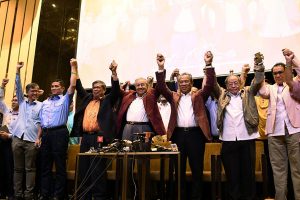
1) Recently, I started thinking about Malay problems again after many months of not doing so. These thoughts were prompted when I read the abstract of a Conference paper “Malays and Islam under Pakatan Harapan’s Coalition” by Dr Ahmad Farouk Musa. The paper will be presented at ISEAS, Singapore on 26 August 2019 (“Abstract”).
2) In the last paragraph, the author noted:
“Pandering to the Malay-Muslim extremists’ view would only lead to a major catastrophe later on though it might be a gratifying moment for the time being.”
3) I agree with his conclusion but since I have not seen the draft of Dr Farouk’s conference paper, I do not know exactly how the author came to that conclusion. Presumably, the catastrophe that he portends has to do with what would befall a people when the society that they seek to construct does not in substance embed the following virtues:
a) democracy;
b) social justice; and
c) universal humanism.
This logic is suggested in the first sentence of his abstract. The author hint at an important moral battle that is looming before us. It sounds like a fight for the soul of Malaysia.
4) Thinking about the abstract, it soon became impossible to just give some thoughts. Too many thoughts came to me because I had not been thinking about such matters for months. I found that I had to spend several days to organise my thoughts in writing in order that I could say anything coherent. Since Dr Farouk’s paper is about the Malays, my comments are also about the Malays. Both the author and I, ultimately, are concerned about Malaysia.
5) Inspired by the author’s identification of the three virtues in the first paragraph of the abstract, this discussion paper brings a minority perspective.
6) Reading the abstract, some questions immediately sprung to mind:
a) Who are these Malay-Muslim extremists that was referred to?
b) What percentage of the Malay-Muslim population do these extremists make up?[1]
c) What is the rest of Malay-Muslim society doing, if anything, to quell these extremists, calm them down and set them on the right track?
7) The three questions in 6 above may be summarised thus:
“Is there, already in train, a general drift of the entire normal distribution of the Malay-Muslim population to the right?”
8) We sometimes see press photographs of the Malaysian police apprehending Malay-Muslim men on suspicion of Islamic terrorist activities. They are certainly at the far end of the right-hand side of the normal population distribution and may be referred to as “outliers”. Are these the extremists that the Conference paper will discuss?
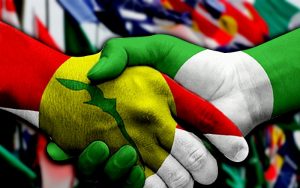 9) I assume not. I think the author has in mind UMNO and PAS in partnership and the further support for them that this will yield. On the rhetoric that they spout, we know that they stand for Malay ethno-nationalism and Islamic religio-nationalism. In combination, they would make a complete package of the idea of “oneness of race and religion” (serumpun, sejagat). In the rest of this commentary, a combination of both Malay ethno-nationalism and Islamic religio-nationalism will be referred to as “Malay-Muslim nativism”.
9) I assume not. I think the author has in mind UMNO and PAS in partnership and the further support for them that this will yield. On the rhetoric that they spout, we know that they stand for Malay ethno-nationalism and Islamic religio-nationalism. In combination, they would make a complete package of the idea of “oneness of race and religion” (serumpun, sejagat). In the rest of this commentary, a combination of both Malay ethno-nationalism and Islamic religio-nationalism will be referred to as “Malay-Muslim nativism”.
10) Whilst Ketuanan Melayu rhetoric in its most confronting mode has tuned-down in the last 2 years, that is so only on the surface.[2] Below the surface, Malay-Muslim nativism is thriving. The kind of politics that UMNO and PAS are doing is designed to make the Malays feel good about themselves by intimidating the minorities.[3]
12) By stoking racism, UMNO and PAS are shifting the political sentiments of the Malays more and more to the right. They are making Malay society more extreme relative to what the rest of the world would consider reasonable. They are able to do that because race relations in this country is anaemic at best.
13) Seemingly, the majority of Malays regard UMNO and PAS as mainstream and legitimate, even after the shenanigans at 1MDB have been widely exposed. A combination of UMNO and PAS gives hope to Malays for an emphatically Malay-Muslim dominant nation in which minorities would know:
a) their place, i.e. they are not Malay-Muslim, and
b) not to stand in the way of efforts to construct a great Malay-Muslim society, i.e. assimilate or leave.
Malay-Muslim nativists are genuinely astounded that the minorities should think that they are welcome and have the same status as fellow citizens. They are positively incensed that anyone, whether minority or dissenting Malay-Muslim voices, should have a problem with the Malay-Muslim unity that UMNO and PAS are pursuing. Why stop it? This is Malaysia, a Malay-Muslim majority country.
14) This is the rhetoric of Malay-Muslim nativism that Pakatan Harapan (“Pakatan”) must overcome if it seeks to push back on Malay-Muslim extremism and modernise Malay politics. But then, this may not be what Pakatan wants.
 15) The existential question for Malay-Muslim nativists is this: “When will Malays govern this country on their own in accordance with the Sharia so that the ummah will enjoy the ascendancy of our race and religion and non-believers would respect us and accept their position as dhimmis?”. If this question has a feasible answer, then there would be no room for minorities because in practical terms, the Malays would not want the non-Malays around except with a very subordinate legal status and taxpaying obligations in exchange for protection. Judged by modern political values, this is racist and is thus, a form of extremism.
15) The existential question for Malay-Muslim nativists is this: “When will Malays govern this country on their own in accordance with the Sharia so that the ummah will enjoy the ascendancy of our race and religion and non-believers would respect us and accept their position as dhimmis?”. If this question has a feasible answer, then there would be no room for minorities because in practical terms, the Malays would not want the non-Malays around except with a very subordinate legal status and taxpaying obligations in exchange for protection. Judged by modern political values, this is racist and is thus, a form of extremism.
16) The permissibility of Malay-Muslim nativism must be evaluated:
a) relative to the provisions of the Constitution of this country; and
b) the Rukun Negara; and
c) its practical effects on the minorities.[4]
Necessarily, the evaluation must be subject to the fact that there we do live in the 21st century global village. Thus, international norms can be relevant to such inquiries. The Pakatan GE 14 manifesto certainly suggested that we would be heading toward such norms across a spectrum of issues.
17) Conceptually, the identification of a Malay-Muslim extremist become like chasing a moving target if the entire Malay-Muslim population and thus also, the mean and the median, are shifting to the right. Theoretically, he may never be regarded as an extremist if he is to be judged by the moving mean and median of the Malay-Muslim population if that population keeps shifting to the right. However, he will be soon be called out as an extremist, according to the old normal within this country, which more closely accords with so-called international norms, even if he has not and may never become one yet under the shifting new normal within this country. In other words, the shifting of the entire normal population distribution of Malays does not make it any harder to conceptually define what extremism is since objective standards of decency are easily identifiable.
18) If the normal population distribution of Malays keeps shifting to the right, the notion of a constitutionally founded Malaysian nation would undergo increasing strain. There will be breakpoint for sure. At that breakpoint, Malay-Muslim nativism would be the norm in this country and therefore, not considered extreme here but there would be no Malaysian nation as we know it anymore – not for the minorities anyway. All bets would be off. In fact, if we hold rational expectations of dhimmitude, we should start planning action now. We are not yet in clear prospect of that breakpoint but no one should be complacent.
 19) Beyond the rhetoric of Malay-Muslim nativism, there was a gravy train that fed those who sustained the rhetoric during the time when UMNO ran the previous government. This sustained the Malay sense of entitlement that is directly linked to Ketuanan Melayu. Few Malay politicians would be willing to openly moderate that sense of entitlement although many Malays already see that it needs to be moderated. This is because none in the mainstream political parties are willing to give up Ketuanan Melayu and the gravy train that it brings. That gravy train is now operated by Pakatan.
19) Beyond the rhetoric of Malay-Muslim nativism, there was a gravy train that fed those who sustained the rhetoric during the time when UMNO ran the previous government. This sustained the Malay sense of entitlement that is directly linked to Ketuanan Melayu. Few Malay politicians would be willing to openly moderate that sense of entitlement although many Malays already see that it needs to be moderated. This is because none in the mainstream political parties are willing to give up Ketuanan Melayu and the gravy train that it brings. That gravy train is now operated by Pakatan.
20) Cut to the chase, the avowedly reformist Pakatan coalition seems to be, by the day, losing its connection with the people who put it into government. This includes the 24% of the Malays who agreed with the Pakatan reform agenda as set out in its GE 14 election manifesto. How did we get to this situation so soon after GE 14?
21) Malays are too obsessed with politics. They fight incessantly within political parties to get up the totem pole. Malay politicians place too much emphasis on building up their own power base within the party and networks outside it in the hope of corralling benefits for the faction that they belong to. Whether these are kept for personal consumption or used as chips to distribute in a grand patronage game called “Malay politics”, it will only lead to the financial and career success of some Malay politicians. It will not lead to the success of the Malay race.
22) Malay hegemony in this country will not secure the future of the Malays. The future will be determined by forces beyond our control. How the big powers will dance or fight with each other will set the scene for the rest of the world. Whether Malaysia will be able to position itself safely in the swirl of shifting geo-political sands will depend in part on our internal cohesion.
a) Internal cohesion requires consensus and trust across all ethnic groups. However, a true Malaysian nation cannot be formed because Malay-Muslim nativism divides the people. Affirmative action should be needs-based going forward. Assimilationist policies, particularly those that are implemented coercively, will never work.
b) Unless we get our act together soon, we will not survive the pounding of the high seas of 21stcentury geopolitics. We would be among the earliest of nations to be trampled under if we do not know what is good for us and fail to use the best people, regardless of race or religion, to deal with complex problems.
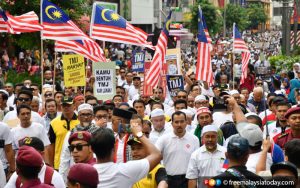 23) It is hard to think of another people anywhere in the world who have staked its dependence on affirmative action provided by the State on the scale, trajectory and persistence through decades that the Malays have enjoyed. Malay leaders must lead their people with greater focus on practical and visible milestones in human development[5] instead of racial pride and religious fervour. They must support the principle that whoever governs this country must be held accountable for performance and ethical integrity.
23) It is hard to think of another people anywhere in the world who have staked its dependence on affirmative action provided by the State on the scale, trajectory and persistence through decades that the Malays have enjoyed. Malay leaders must lead their people with greater focus on practical and visible milestones in human development[5] instead of racial pride and religious fervour. They must support the principle that whoever governs this country must be held accountable for performance and ethical integrity.
24) Universal humanism is something that Malays need to learn about. It is necessary for the creation of an advanced Malay society. By definition, such a society would reject Malay-Muslim nativism. Take note: Rejecting Malay-Muslim nativism is not the same as rejecting one’s race as a Malay or religion as a Muslim. Without universal humanism, the adaptive abilities of the Malays would be largely limited to political adaptation.[6] But what about social, economic and technological adaptation? This is most important from a Malay survival standpoint. Adaptation to changing circumstances, other than through political dominance, is something that Malays must give attention to.
25) How should the world think of Islam? That depends on how Muslims, including those in this country, practise religion. If it is practised prayerfully as faith in Divinity, then peace to all. If it is practised as politics, then do not be surprised that others will engage it as politics. Time and again, the Malays politicise religion at home and abroad and then realise how junior Malaysia is when we try and get through the diplomatic meat-grinder with the likes of the US and China. [7] [8]
26) Our foreign policy views will never be regarded as weighty enough until we put our own house in order and have some big achievements of our own. Therefore, the Malays should focus on capacity building at home, i.e. learn new skills and demonstrably contribute more to Malaysia’s economic performance as a country. When we have succeeded as Malaysians, we can share our experience abroad when there is opportunity to do so.
27) The best networks in the world, whether in finance, trade or academia, are full of Jews, Whites, Chinese and Indians. Perpetuating a domestic political narrative in which hatred, fear and suspicion are directed against these groups will lead the Malay race to exclude itself from the most important endeavours globally, i.e. the search for and harnessing of relationships, money, opportunities for trade in all things, tangible and intangible, and the discovery of new knowledge.
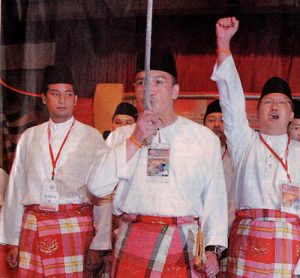 28) Most Malays do not understand how the minorities must feel about being picked on and forced to acknowledge confronting displays of Malay power,[9] the most famous of which was the Hishamuddin Hussein keris-kissing incident of 2005. [10] It would be tempting for us to wish for a Malay strongman who will rationalise the Malay mind by enforcing constitutional rule and secularism ala Mustafa Kamal. A society made rational in this way may even succeed in building some important new industries. But for a country like Malaysia, the trauma of forced modernisation will likely cause national schizophrenia that may show itself decades later. That, arguably, is what we see in Turkey today.
28) Most Malays do not understand how the minorities must feel about being picked on and forced to acknowledge confronting displays of Malay power,[9] the most famous of which was the Hishamuddin Hussein keris-kissing incident of 2005. [10] It would be tempting for us to wish for a Malay strongman who will rationalise the Malay mind by enforcing constitutional rule and secularism ala Mustafa Kamal. A society made rational in this way may even succeed in building some important new industries. But for a country like Malaysia, the trauma of forced modernisation will likely cause national schizophrenia that may show itself decades later. That, arguably, is what we see in Turkey today.
29) For now, speaking as a minority, I would rather place my trust in the entire population of Malays and ask them to please start walking away from the far right and come back to the centre. “The non-Malays are waiting for you. We are meant to be together. Let the messiness of democracy take us forward. Let’s share in universal humanism and work for social justice for all.”
30) The Malays should imagine how it would be to live in a country steeped in Malay-Muslim nativism and shrouded in Arabism. Will it have democracy, universal humanism and social justice? Will it be one where their children will grow up with many friends from many different ethnic groups and faiths? Will their children grow up to be well-adjusted adults who value knowledge and freedom and happily accept diversity? Even if they want their children to grow up to be adults who are deep in their Islamic faith and proud to be Malay, it should not be at the expense of being well-adjusted, knowledgeable, free and respectful of others.
31) So, I think Dr Farouk is right when he says:
“Pandering to the Malay-Muslim extremists’ view would only lead to a major catastrophe later on though it might be a gratifying moment for the time being.”
32) I look forward to reading his Conference paper to find the reasons for this conclusion.
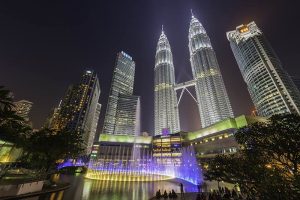 33) A great nation is so because its people are wise and have their country close at heart. Until Malaysia has its own Barrack Obama-moment, it is the Malays who must supply the prime ministership that can save Malaysia. A great political strategist can still lead his country astray because the rest of the people in government lack the courage to work with him. They think they work for him. They cannot bring out the best in him because they do not command his respect enough. Failure starts with the failure to discern truth from facts and ends with the inability to differentiate right from wrong. The question that matters in the end is this:
33) A great nation is so because its people are wise and have their country close at heart. Until Malaysia has its own Barrack Obama-moment, it is the Malays who must supply the prime ministership that can save Malaysia. A great political strategist can still lead his country astray because the rest of the people in government lack the courage to work with him. They think they work for him. They cannot bring out the best in him because they do not command his respect enough. Failure starts with the failure to discern truth from facts and ends with the inability to differentiate right from wrong. The question that matters in the end is this:
“Can Malaysia be a modern country that is a united nation, a happy people and run an internationally competitive economy?”
34) It depends on the Malays.[11]
Harold Kong is a chartered accountant.
Footnotes:
[1] Labelling them as extreme does suggest that they are outliers, surely, they reside beyond three standard deviations of the mean on the right-hand side (only) of the normal distribution?
[2] I think that this is because (a) it had begun to seriously embarrass the younger and better educated amongst the Malays who do have to work with non-Malays and foreigners in business and professional settings and (b) contending Malay political elites do, from time to time, pause and realise that winning non-Malay support would be useful if they want to win power.
[3] Malays outnumber the minorities by nearly 3 to 1 and in an outright conflict, it is worth remembering that the State instruments of armed force are in Malay hands.
[4] By contrast, conceptual arguments on a matter like this are likely to be unproductive if assumptions of contending parties are different and trivial if their assumptions are similar.
[5] Instead of concentrating on better rates of harvests in their farms, improved personal health, higher passing rates at SPM, lower rates of HIV infection and so on, they seem to hunger for racial pride and religious fervour. How will that solve their problems?
[6] Many Muslim says Islam is an all-encompassing way of life. To non-Muslims, it often looks like a comprehensive form of sectarianism: exclusivist in its sense of nationhood, inclusivist in its grasp of taxation and all too often belligerent in its general tendencies. That belligerence is felt in attempts to assimilate the minorities. This is the inflection point where unacceptable levels of coercion should be identified as extremism. Once again, we see that the difference between religion and politics is balanced on the edge of a knife and the exact tilt depends on the State.
a) On one side is personal faith which should be shared gently, with love and without compulsion.
b) On the other side is mass doctrine that is enforced to ensure the unified support of believers and thus, power for the elites.
[7] The robust reaction of the West to Islamism in the last two decades and China in the last decade is due to the politicisation of religion to the point where it is weaponised. This is my grim observation, not my agreement with the methods of the West and China.
[8] It is obvious that Malaysia does not deal with the Rohingya problem and the Uighur problem using the same principles because the stakeholders have different impact on us if push comes to shove. It is obvious that shouting at Israel for two hours in some hastily called demonstration in the car park after Friday prayers does give some media exposure to Malay-Muslim politicians. It does not do much for Palestinians and zero for peace in the Middle East.
[9] The emotions of the minorities in this country are like those of children in a dysfunctional family. They feel that there is not enough love, respect, faithfulness, care and concern and honesty in this family. Homogeneity and subservience to the majority are not the way of the future. People need to be united in diversity and enjoy mutual respect.
[10] The recent Khat proposal is deplorable as it is done in a climate that lacks trust, without due consultation and comes across as belligerently supremacist.
[11] Thus, Malays must realise that they are the majority and democratic power rests with them. With power comes responsibility for social justice and acceptance of universal humanism.
ABSTRACT “MALAYS AND ISLAM UNDER PAKATAN HARAPAN’S COALITION“
![]()
MALAYSIA STUDIES PROGRAMME SEMINAR
Malays and Islam under Pakatan Harapan’s Coalition
Date : Monday, 26 August 2019
Time : 10.30 am – 12.00 noon
Venue : ISEAS Seminar Room
About the Seminar
A major challenge confronting the Pakatan Harapan government after the GE14 is the construction of institutions and values premised on democracy, social justice, and universal humanism. While these are the inspirations of the new government, they might not necessarily be shared by the Malay-Muslims who are the majority, particularly those in the east-coast of the peninsula. In fact, a recent Merdeka Centre survey found that only 24% of Malays agreed with the direction set by the new government. While the last GE saw the Pakatan government winning 121 parliamentary seats, they only won 48% of the popular vote. The former ruling party UMNO and its former nemesis PAS have forged an alliance and creating a new political equation that might threaten the current government in the next GE. Adding UMNO and PAS together would probably constitute slightly more than 50% of the Malayvote.
The hard fact is that Malays make up 74% of the B40 group having an aggregate household income of below MYR4360 per month. And the basic issues that trouble this group are: the high living costs, the fear that their ethnic privileges are being compromised and eroded; and not on the issue of leakages and corruption. They voted in the new government believing that the GST would be abolished and that this would in turn result in a lower price of goods, that fuel prices would go down, student loan repayment would be deferred, and that road tolls would be abolished. But those have not happened and the group is now feeling the pinch leading to disenchantment with the government. What more with the growing perception that the Chinese-dominated DAP are the ones steering the government, side-lining Malay interests, and making a mockery of Islam and the Malay rulers. This was evidently clear when the government had to backtrack on two major issues on ratifying the ICERD – International Convention on the Elimination of All Forms of Racial Discrimination – and ratifying the Rome Statute to avoid Malay backlash. Unless the new government acts fast to stop this erosion of Malay trust, the UMNO-PAS alliance will grow at a very fast rate and would be a more formidable opponent in the next GE.
And although unpopular, the new government must also play a proactive role in promoting Islam that is qualitatively different from the narrow and inflexible version advocated by literal Islam and the previous government. Pandering to the Malay-Muslim extremists’ view would only lead to a major catastrophe later on though it might be a gratifying moment for the time being.
About the Speaker
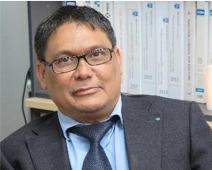 Dato’ Dr Ahmad Farouk Musa is a Founder and Director at the Islamic Renaissance Front, a think tank advocating reform and renewal in Islam. He is an academic researcher at Monash University Malaysia and a Cardiothoracic Surgeon. He is actively involved in civil society and the emerging discourse on post-Islamism. He was a Vice Chairman of BERSIH 2.0, a powerful coalition promoting free and fair election and a founding member of the Muslim Professionals Forum. He was also a former Commissioner at theCommonwealth
Dato’ Dr Ahmad Farouk Musa is a Founder and Director at the Islamic Renaissance Front, a think tank advocating reform and renewal in Islam. He is an academic researcher at Monash University Malaysia and a Cardiothoracic Surgeon. He is actively involved in civil society and the emerging discourse on post-Islamism. He was a Vice Chairman of BERSIH 2.0, a powerful coalition promoting free and fair election and a founding member of the Muslim Professionals Forum. He was also a former Commissioner at theCommonwealth
Initiative for the Freedom of Religion or Belief (CIFoRB) based in Westminster, London, and a former Director of the Centre for Combating Corruption and Cronyism (C4). He currently holds the position of a Research Fellow at Sekolah Tinggi Filsafat Islam – STFI Sadra, Jakarta,Indonesia.

